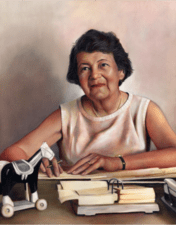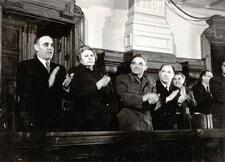Education
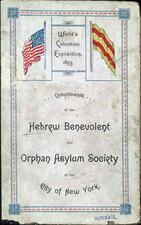
Orphanages in the United States
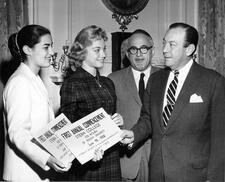
Orthodox Judaism in the United States
Orthodox views on the roles women may play in their communities’ religious, educational, and social life have reflected the range of attitudes that religious group has harbored toward American society. Generally, those Orthodox Jews who have resisted American culture have not countenanced the active participation of women within the synagogue. For other Orthodox Jews, the opening of synagogue life to greater women’s participation, within what they see as the expansive boundaries of halakhah, is but another dimension of their accommodating approach to their encounter with America.
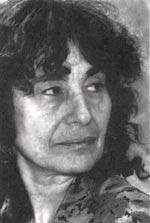
Alicia Suskin Ostriker
Alicia Ostriker is a feminist revolutionary, a poet, critic, and creator of contemporary midrash. She is one of an increasing number of women writers who have the courage to approach bibliocal history and legend from an unorthodox, feminist point of view.
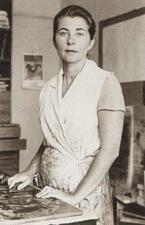
Fayga Ostrower
Fayga Ostrower, born in Poland, began her artistic career after her family immigrated to Brazil, where she quickly developed a love and a talent for engraving. Her award-winning works have been displayed across the world, and she wrote many books reflecting on the power of art as a universal human language.
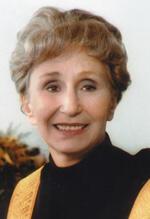
Sylvia Ostry
Sylvia Ostry, born in Winnipeg, Canada, was a distinguished economist, academic, and government leader. She taught at universities across Canada, served in numerous government posts, and authored over eighty publications, mostly on policy analysis.
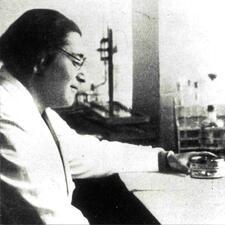
Berta Ottenstein
A pioneer in skin biochemistry and dermatology, Berta Ottenstein became the first woman lecturer in the Medical Faculty at the University of Freiburg in 1931. Two years later she was forced to flee Germany and begin her scientific career anew. After occupying research positions at the universities of Budapest and Istanbul, she received a research fellowship at Harvard University in 1945.

Margalit Oved
Margalit Oved—dancer, choreographer, singer, actress, musician—is the epitome of a performance artist. Her work blended elements from the Yemen of her childhood, the Israel of her adolescence, and the Los Angeles of her adulthood. She has left an indelible mark on twentieth-century Jewish culture through her inventive and modern interpretations of ancient biblical tales.
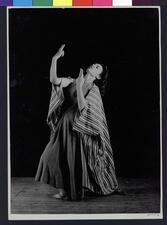
Dancer Paula Padani
Paula Padani
Paula Padani was an influential choreographer, performer, and teacher who explored Jewish themes in her work as she danced throughout Israel, the United States, and Europe. Her work was inspired by the landscapes of Israel and biblical themes, and she was celebrated in post World War Two Paris for her talent and vitality as a Jewish artist.
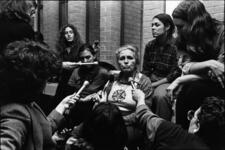
Grace Paley
Grace Paley wrote highly acclaimed short stories, poetry, and reflections on contemporary politics and culture. A rare example of a writer deeply engaged with the world, Grace Paley made an impact as much through her activism as her writing.
![Swiss identity card of translator, journalist, and author Juliette Pary (pen name of Juliette [Gourfinkel] Pougatch), 1944.](/sites/default/files/styles/gallery_item/public/mediaobjects/ch-bar_e4264_1985-196_10835_5_1.jpg?itok=7ZMC46d1)
Juliette Pary
Born in Odessa, Juliette Pary moved to Paris in 1925 and became a respected translator, journalist, and author. She also played important roles in summer camps, youth hostels, and the development of modern educational practices. During World War II she worked closely with child refugees.
Jessica Blanche Peixotto
Judith Peixotto
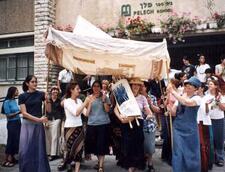
Pelech Religious Experimental High School for Girls, Jerusalem
Pelech is a pioneering school for girls in Jerusalem. For over half a century, Pelech has sought to educate its students towards a love and understanding of Torah. It encourage its students to take part in leadership roles in the religious world and in Israeli society and promotes women’s involvement in improving social justice.
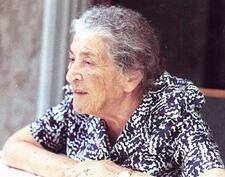
Bracha Peli
Bracha Peli was unique among the literary community of pre-state Palestine, creating what was probably the most successful and dynamic publishing house in the country at the time. Born Bronya Kutzenok in Tsarist Russia, Peli had an expansive and highly successful career.
Rivkah Perelis
Rivkah Perelis was a Polish-born historian whose research focused on the Holocaust and the Zionist youth movement during the Nazi occupation of Poland.
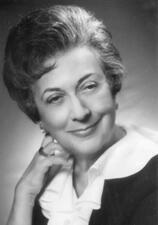
Helen Harris Perlman
With almost seventy years as a social work practitioner, supervisor, teacher, consultant, and author to her credit, Helen Harris Perlman was a legend in her field. She pioneered the “Chicago School” of social work, arguing that many people in crisis needed short-term therapy and solutions rather than long-term Freudian analysis.
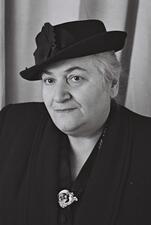
Shoshana Persitz
Born in Russia to wealthy parents, Shoshana Persitz was a passionate Zionist and a leader in education reform. She operated a Hebrew-language publishing house in Russia before making Aliyah to Israel, where she continued in publishing and served three terms in the Knesset.
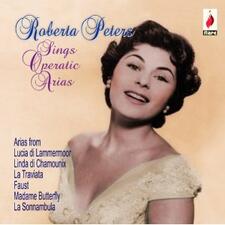
Roberta Peters
Singer Roberta Peters led a career spanning more than half a century as one of the Metropolitan Opera’s most popular sopranos. A frequent performer on the radio, television, and stages around the world, Peters was also involved with many public health and Jewish organizations throughout her life.
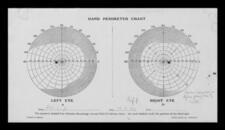
Ursula Philip
Ursula Philip was a German geneticist whose work was interrupted by the Nazis’ rise to power but achieved prominence after fleeing to Great Britain.
Ellen Phillips
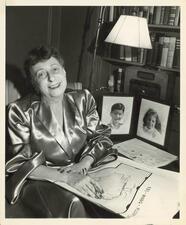
Irna Phillips
Irna Phillips created hugely popular soap operas for radio and television and introduced plotlines that shaped the format of many soaps that followed.
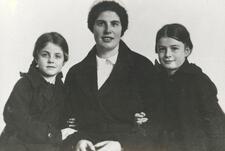
Clara Asscher Pinkhof
Clara Asscher Pinkhof dedicated her life and work to helping and advocating for Jewish children, initially as a teacher and later as an author. She is most known for her accounts of the experiences of Jewish children during the Nazi occupation.
Mimi Pinzón
Mimi Pinzón published a wide variety of acclaimed literary works in Yiddish, including her childhood novel Der hoyf on fenster, along with numerous Yiddish periodicals in Argentina and elsewhere. Pinzón is arguably the sole significant Yiddish writer who spent none of her school years in Eastern Europe.
